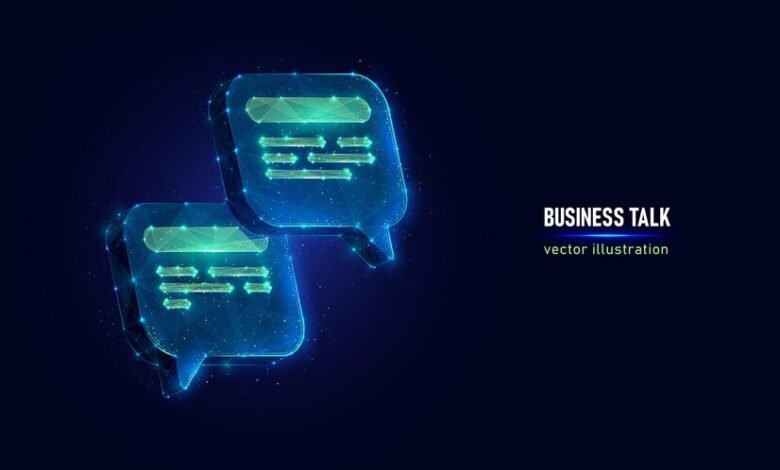
In recent years, the term “simpcitu” has exploded in popularity, becoming a ubiquitous part of internet culture. With memes, TikTok trends, and YouTube videos using the term in a lighthearted or critical context, it’s important to take a deeper dive into what “simpcitu” truly means and how it has evolved. From its beginnings as a term used to describe men who excessively fawn over women, to its widespread use today, “simp” has become more than just an internet meme. But what does it really mean to be a “simp,” and why has this term attracted so much attention?
The Origins of “simpcitu”: A Historical Perspective
The word “simpcitu” isn’t as new as it may seem. Though it has seen a resurgence on social media platforms like TikTok and Twitter, its origins date back much further. The term “simp” is derived from the word “simpleton,” which has been used since the 19th century to describe a foolish or gullible person. In the 1980s and 1990s, the term evolved into a slang expression that was used to describe someone who was overly submissive or excessively attentive to someone they were infatuated with, often to the point of self-deprecation or humiliation.
In its earliest form, being a simp was viewed as a negative trait, implying weakness or a lack of self-respect. However, as the internet age began to take hold in the early 2000s, the term started to take on a more complex set of connotations, and its meaning shifted in response to evolving attitudes toward relationships, gender roles, and social media behavior.
The Evolution of simpcitu Culture in the Age of Social Media
As social media platforms such as Instagram, Twitter, and YouTube began to rise in prominence, the term “simpcitu” started to gain traction in online communities. Influencers, streamers, and celebrities—particularly those in the gaming and pop culture spheres—were often subjects of admiration from fans who showed extreme levels of devotion, sometimes to the point of spending large amounts of money on gifts, donations, or attention-seeking behavior in comment sections and livestreams.
In 2019, the term “simp” truly went viral when a popular Twitch streamer, Ninja, publicly stated that men who donate money to female streamers for the sole purpose of gaining attention or approval were “simpcitu.” The comment quickly caught fire and sparked a massive debate about the ways in which men interacted with women online and the levels of respect (or lack thereof) they were offering in these interactions.
Since then, “simp” has been used widely across platforms like TikTok, Instagram, and Twitter, often in a playful or humorous context. However, it is important to note that this term, though seemingly lighthearted, has deeper implications. It reflects a shift in how people perceive power dynamics in relationships, both romantic and platonic, in an age where digital interactions are central to how individuals connect.
The Gendered Nature of simpcitu
One of the most interesting aspects of simpcitu is its inherently gendered nature. Historically, the term has been used almost exclusively to describe men who excessively idolize or attempt to please women, often at the cost of their own dignity or self-worth. This reflects an ongoing cultural conversation about masculinity and the expectations placed on men to be dominant, assertive, and self-sufficient.
The fact that “simpcitu” is often used to criticize men for showing vulnerability or emotional investment in their interactions with women underscores a deeply ingrained societal belief that men should not display weakness or submission. In many ways, simp culture can be seen as a backlash against the increasing visibility of men who defy traditional gender norms by being emotionally available or generous toward women.
On the flip side, women who engage in “simping” behavior are often not given the same scrutiny. In fact, women are generally free to express affection, support, and admiration without the same level of judgment. This gender disparity points to the unequal ways in which men and women are perceived when they deviate from expected roles within the online and offline world.simpcituOn the flip side, women who engage in “simping” behavior are often not given the same scrutiny. In fact, women are generally free to express affection, support, and admiration without the same level of judgment. This gender disparity points to the unequal ways in which men and women are perceived when they deviate from expected roles within the online and offline world.
The Psychological and Social Implications of simpcitu
While simpcitu culture is often discussed in humorous or dismissive tones, it’s important to examine the psychological and social implications of this behavior. Many individuals who are labeled as “simps” may simply be expressing affection or admiration in ways that don’t align with traditional notions of masculinity. The constant criticism or shaming of these individuals can lead to feelings of inadequacy or confusion about how to behave in romantic and platonic relationships.
Furthermore, in the context of modern dating culture, “simpcitu” can sometimes reflect a deeper insecurity. As people struggle to establish meaningful connections in an increasingly virtual world, some may resort to extreme gestures, hoping to gain validation from others. The popularity of platforms like OnlyFans, where fans can pay for personal content and interactions with influencers, exacerbates these tendencies. The line between genuine emotional connection and transactional admiration has become blurred, leading some individuals to seek validation in ways that feel empty or performative.
At its worst, simp culture can perpetuate unhealthy expectations of both men and women in relationships. For example, the idea that men should shower women with gifts or attention to win their affection places undue pressure on both parties. This can create an environment where relationships become transactional, with people feeling as though they must “earn” love or admiration rather than experiencing it organically.
The Impact of Memes and Internet Culture on simpcitu Behavior
A significant part of the rise of simp culture can be attributed to the pervasive role that memes and internet humor play in shaping modern social norms. Memes, particularly those on platforms like TikTok, Twitter, and Instagram, often present exaggerated portrayals of “simpcitu” behavior as comedic or exaggerated, making light of what might otherwise be considered unhealthy or excessive devotion.
In fact, the memeification of simpcitu culture has made it more socially acceptable, especially among younger generations. When a behavior is framed as funny or lighthearted, it reduces the stigma associated with it, which in turn encourages more people to engage in similar actions. As memes continue to shape how we view relationships, they also influence the ways in which people engage in online interactions, blurring the lines between admiration, obsession, and healthy emotional expression.
Is “simpcitu” Ever Okay? Understanding Healthy Expressions of Affection
It’s crucial to distinguish between genuine affection or support and toxic behavior when talking about simpcitu culture. Showing kindness, generosity, and respect to others—whether in a romantic, platonic, or parasocial relationship—is an entirely natural part of human interaction. There is nothing inherently wrong with showing admiration or expressing love for someone you care about, as long as it is done with respect for both parties’ boundaries and well-being.
The issue arises when this admiration becomes disproportionate, obsessive, or involves self-sacrifice to the point of personal harm or humiliation. Healthy relationships—both online and offline—are built on mutual respect, shared values, and clear communication. It’s important to remember that true connection should never come at the expense of one’s self-respect, mental health, or overall sense of well-being.

Conclusion: Navigating simpcitu in the Digital Age
simpcitu culture has undeniably become a defining feature of modern internet behavior. Whether you view it as a harmless meme or a reflection of deeper societal issues, the term “simp” has sparked important conversations about masculinity, relationships, and how we navigate online interactions in a world increasingly dominated by digital communication.
As we continue to engage with social media and online platforms, it’s essential to reflect on the meaning behind the behaviors we label as “simpcitu.” Is it a sign of emotional vulnerability, or is it an indication of unhealthy attachment? In a society where human connections are often mediated by technology, it’s more important than ever to foster a culture of respect, emotional intelligence, and self-awareness in both our online and offline relationships.
While the term “simpcitu” will likely continue to be used in various contexts, its broader implications remain a topic of significant discussion. Moving forward, we must navigate simp culture with nuance, recognizing the difference between healthy emotional expression and harmful behavior, all while ensuring that we respect the autonomy and humanity of everyone involved.





